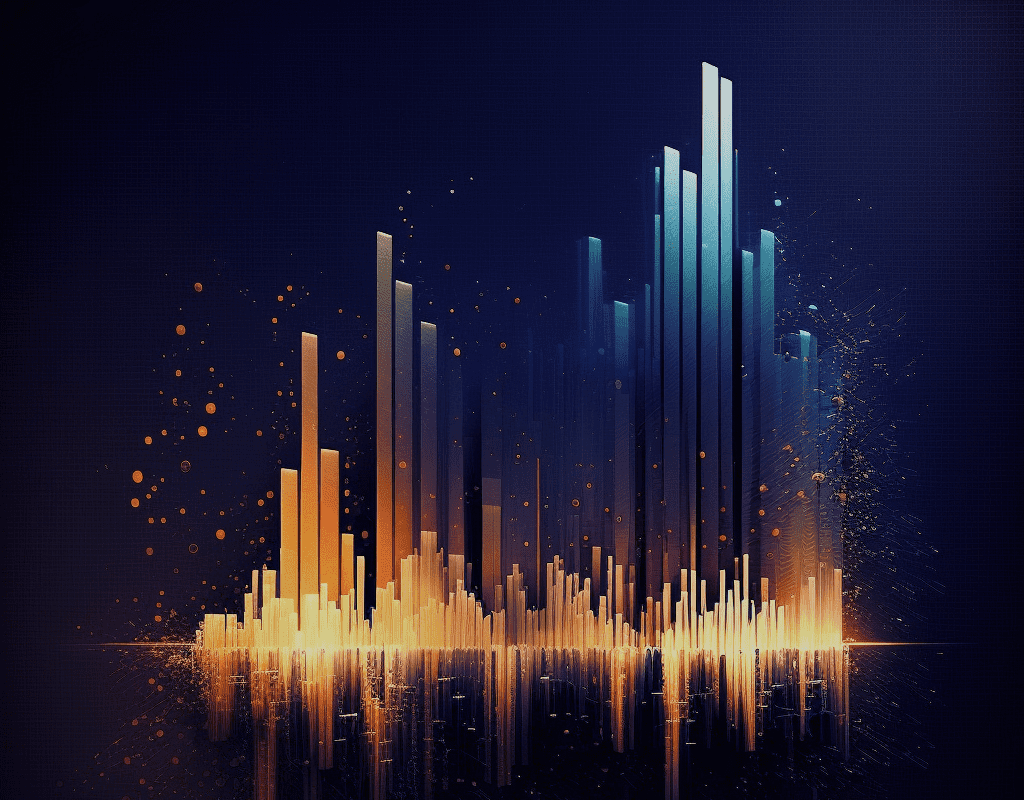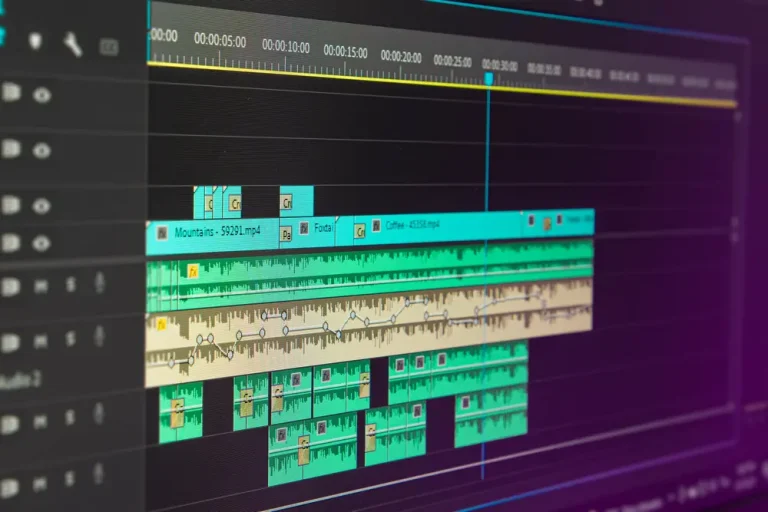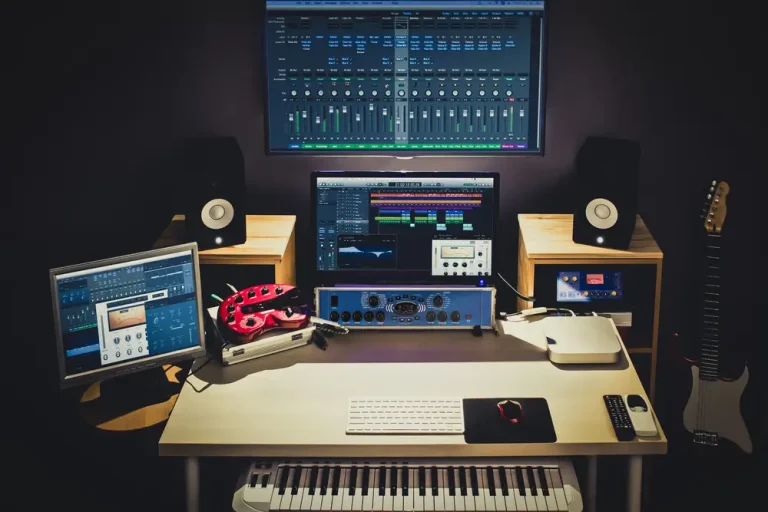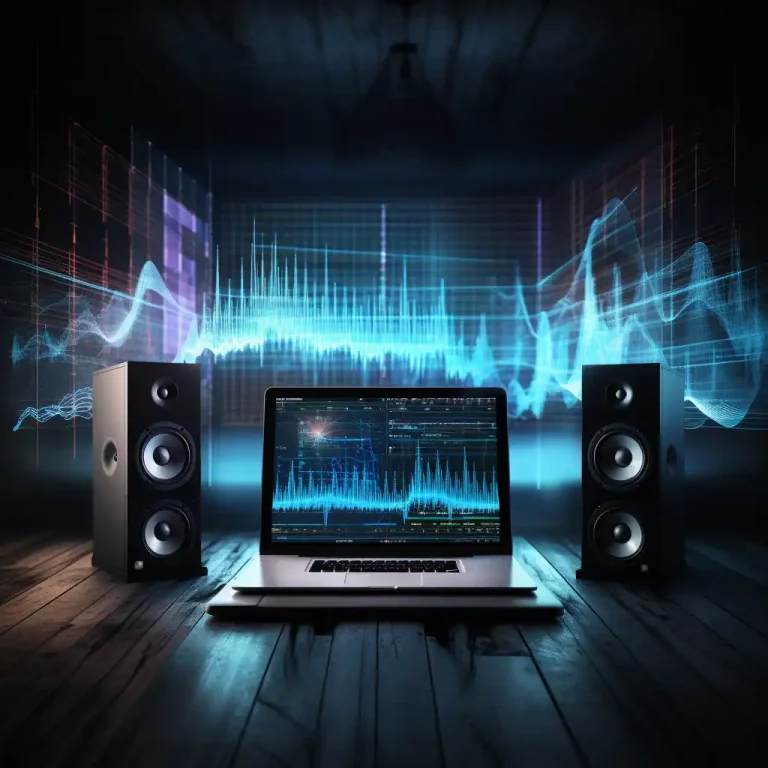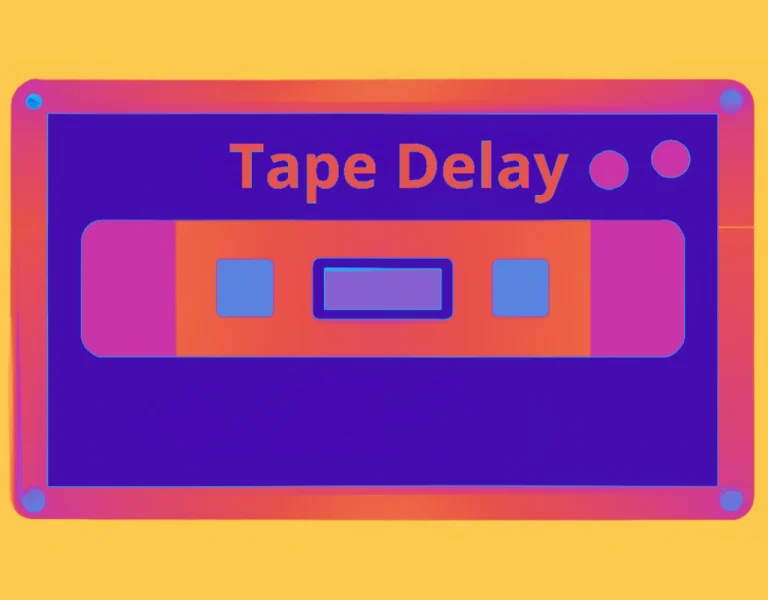Does Eq Affect Sound Quality? (Explained)
A question that comes up quite often in the world of audio engineering is whether EQ impacts the quality of sound.
The answer is a resounding yes – EQ impacts sound quality.
With EQ, you can breathe new life into your audio by altering the levels of various frequencies to transform the overall sound and make it sound fantastic.
However, it is important to note that overuse of EQ can lead to unwanted side effects such as distortion, phase problems, and an unnatural sound.
So, using EQ judiciously is crucial.
Read on to learn more about how EQ affects sound quality.
Key Takeaways: Does Eq Affect Sound Quality?
What is EQ?
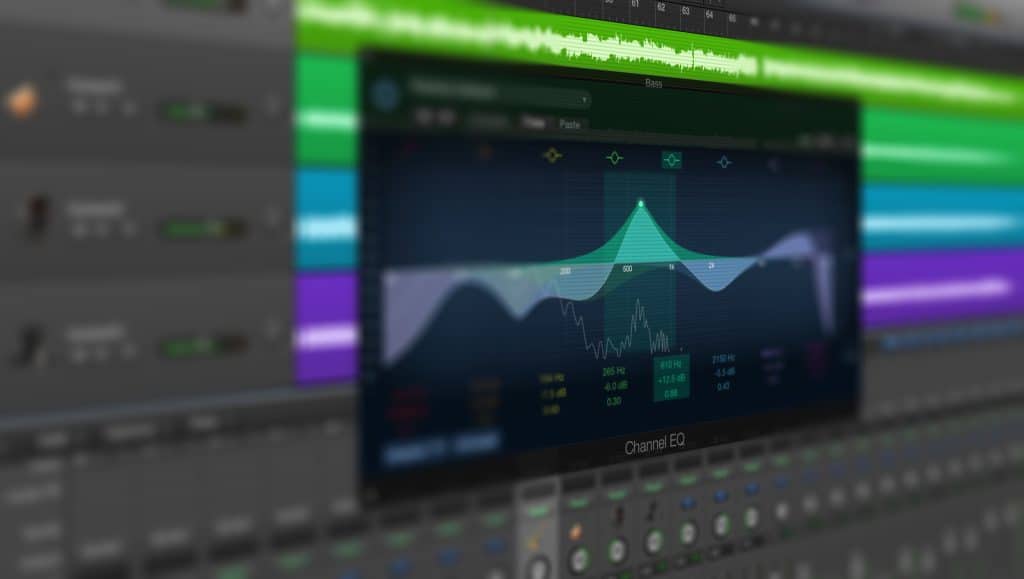
Definition of EQ
Equalization, or EQ, is the magical process of sculpting sound with precision and artistry.
By manipulating frequency-based filters, you can shape the timbre and tonal balance of any instrument or mix to perfection.
With EQ, the sound engineer or producer can enhance or fix specific elements of a mix by boosting or cutting targeted frequencies in the sound spectrum.
Whether applied to individual tracks or the overall mix, EQ is vital for any music production process.
EQ can be applied to individual tracks or the overall mix, and it is an essential part of the music production process.
Types of EQ
There are several types of EQ, from digital plugins and outboard hardware to analog methods like parametric EQ.
Each type works by filtering out specific frequencies and boosting others to provide various levels of tonal control.
How EQ is used in music production
EQ can affect the sound quality of both individual instruments and entire mixes.
While it won’t magically improve a poor-sounding audio track when appropriately used, EQ can drastically alter its sonic characteristics.
By adding clarity, depth, presence, or character to an instrument or mix, EQ can transform its sound in breathtaking ways.
But even a slight misstep with EQ can ruin your mix – so learning how to use it effectively is essential.
How Does EQ Affect Sound Quality?
Explanation of the frequency spectrum
The frequency spectrum is the range of frequencies humans can hear and is divided into several bands that each impact sound quality.
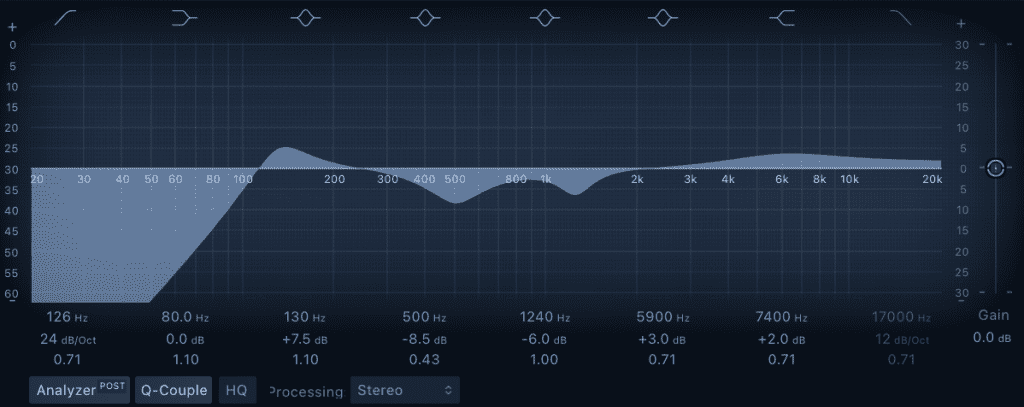
By manipulating the different frequency ranges, we can adjust the overall sound of a track and ensure that it sounds balanced and clear.
By adjusting specific frequencies, we can improve the overall sound of a track and ensure that each element occupies its own space in the frequency range.
EQ’s impact on track frequency balance
By applying EQ, we can adjust the volume levels of individual frequency bands to balance the overall sound of a track.
However, improper use of EQ can result in over-emphasized or muffled frequencies, causing the track to sound unbalanced or unnatural.
It is important to use EQ judiciously to ensure that the frequency balance of the track is optimized and that the sound quality is not compromised.
EQ’s Impact on Sound Dynamics and Clarity
EQ has a significant impact on the dynamics and clarity of sound.
It can enhance or reduce the loudness and improve clarity by removing unwanted frequencies.
Proper use produces a more balanced, clear, and dynamic mix, while overuse can lead to distortion and an unnatural sound.
Understanding the impact of EQ on dynamics and clarity is essential for achieving optimal sound quality.
Common Misconceptions About EQ and Sound Quality
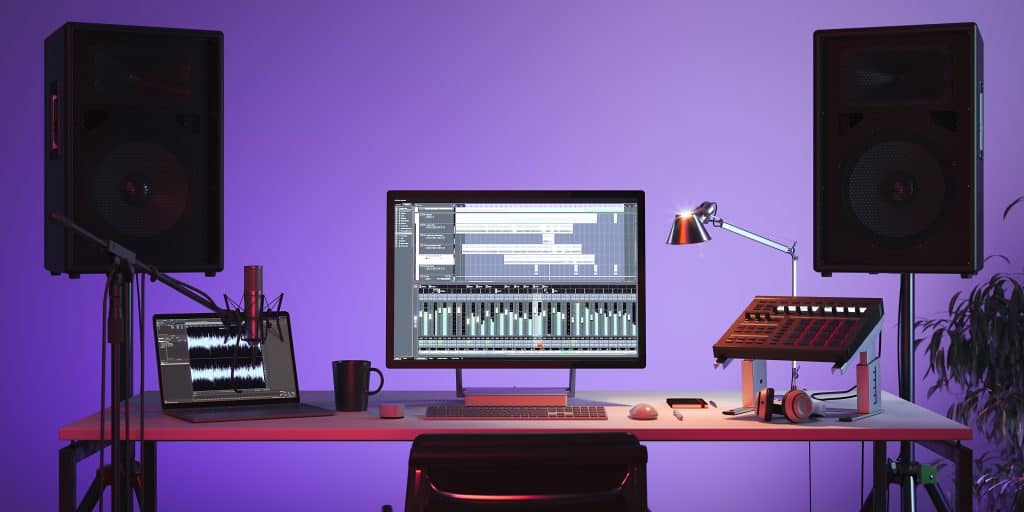
EQ is not a magic fix for all sound problems
EQ is a powerful tool that can be used to improve the sound quality of a track, but it is not a magic fix for all sound problems.
While EQ can enhance specific frequencies and balance the overall sound of a track, it cannot fix issues arising from poor recording techniques or equipment.
EQ is not the only factor that affects sound quality
Many factors are at play regarding the quality of a recording or performance.
The recording equipment, the skill of the engineer or producer, and the musicians themselves can all contribute to the final sound.
But that’s not all – even the recording or performance space’s acoustics can significantly impact the result.
How sound waves interact with the environment can shape the timbre and texture of the music in unexpected ways.
And let’s not forget about the listener’s subjective preferences.
What one person considers great sound quality may differ from another.
It’s all part of the rich tapestry of music and sound, a constantly evolving journey that never ceases to amaze.
Techniques for Using EQ to Improve Sound Quality
Understanding the frequency ranges
Understanding the frequency ranges in an equalizer is essential to achieve the desired sound quality.
Low frequencies, typically between 20 Hz to 250 Hz, are responsible for the music’s bass or the rumbling sound.
The mid frequencies, between 250 Hz to 4 kHz, are responsible for the vocals and instruments like guitar and piano.
High frequencies, between 4 kHz to 20 kHz, are responsible for the treble or the sharpness of the music.
Using EQ to enhance certain elements of a track
EQ can transform your mix from good to great.
By expertly adjusting the levels of different frequencies, you can bring out the nuances and richness of each element.
Need to beef up your bass? Boost those frequencies to create a sound that’s full and impactful.
Struggling with a muddy mix? Cutting midrange frequencies can clear things up and make the mix more defined.
And let’s not forget about the highs – by cranking up those frequencies, you can add a beautiful sparkle to your vocals and instruments like cymbals and hi-hats.
By using EQ in a targeted and precise way, producers and engineers can sculpt the tone of a track and make it sound more polished and professional.
Using EQ to fix problems in a mix
If your bass feels too muddy or booming, EQ can help by selectively cutting the low frequencies responsible for the issue.
If your vocals are coming across as too sharp or sibilant, EQ can be your solution.
Your vocals can shine by reducing problematic frequencies or infusing warmth.
Don’t let harsh or sibilant vocals dampen your sound.
With some EQ magic, you can dial in the perfect tone for your unique voice.
Here are 5 tips on using EQ to fix problems in a mix:
- Identify the problem frequency range.
- Use EQ to cut or boost the problematic range.
- Use a narrow Q to target specific frequencies.
- Use EQ sparingly to avoid artificial sound.
- Use reference tracks to compare and adjust your mix.
By identifying problem areas in your mix and using EQ to correct them, you can make your tracks sound better and more professional.
Conclusion
For music producers and audio engineers alike, EQ is a superpower that cannot be overlooked.
With the ability to balance frequencies, bring out dynamics, and enhance clarity, EQ is an essential tool that should be wielded with skill and precision.
But beware – the common misconception that EQ can solve all sound problems or that more is always better can harm your sound quality.
Instead, approach EQ thoughtfully with a deep understanding of the frequency spectrum.
Use it to enhance specific elements or fix issues in a targeted and balanced way.
When used carefully and deliberately, EQ can make all the difference in achieving optimal sound quality and bringing your productions to life.
So, the next time you reach for EQ, do so with respect and a keen ear for balance.
With EQ mastery, your music will soar to new heights!
Frequently Asked Questions
What is the function of an equalizer?
An equalizer (EQ) is a tool used to adjust the balance between different frequency components of an audio signal. By altering the levels of specific frequencies, an EQ can enhance or attenuate certain aspects of the sound, helping to achieve a more desirable audio experience for the listener.
How do EQ settings affect overall audio quality?
EQ settings can have a significant impact on the overall audio quality. By adjusting the levels of various frequencies, EQ can help to emphasize or de-emphasize certain sounds in a mix, providing a different listening experience. However, improper EQ settings can also lead to poor audio quality or unwanted distortion.
Can adjusting EQ eliminate audio distortion?
In some cases, adjusting EQ settings can help to eliminate or minimize audio distortion. For example, if a particular frequency is causing distortion, reducing its level through the equalizer can help to alleviate the problem. However, EQ adjustments alone may not be sufficient to completely eliminate distortion, especially if the source material or recording quality is poor.
How does an equalizer alter various frequency bands?
An equalizer works by boosting or cutting the amplitude of specific frequency bands within an audio signal. This is typically accomplished through the use of filters, which allow certain frequencies to pass while attenuating others. By adjusting the levels of these filters, users can emphasize specific frequency ranges or attenuate problematic frequencies, ultimately shaping the overall audio experience.
What are optimal EQ settings for various listening contexts?
There is no one-size-fits-all answer to this question, as optimal EQ settings can vary depending on personal preferences, the specific audio content, and the listening environment. However, some common EQ adjustments could include:
- Boosting bass for dance or hip-hop music
- Cutting midrange to reduce vocal or instrument harshness
- Enhancing treble for greater clarity in speech or acoustic music
It is important for listeners to experiment with different settings to find the EQ balance that best suits their tastes and the type of audio content they are listening to.
Does using an EQ compromise audio fidelity?
Using an equalizer can potentially have some impact on audio fidelity, particularly if the equalizer introduces noise or other unwanted artifacts into the signal. However, many modern EQ plugins and hardware devices are designed to minimize these issues, allowing users to adjust the frequency balance without significantly degrading audio quality. In many cases, the benefits of using an equalizer to improve the listening experience outweigh any potential loss of audio fidelity.
References
https://emastered.com/blog/equalizer-music
https://www.armadamusic.com/university/music-production-articles/eq-explained-the-basics

